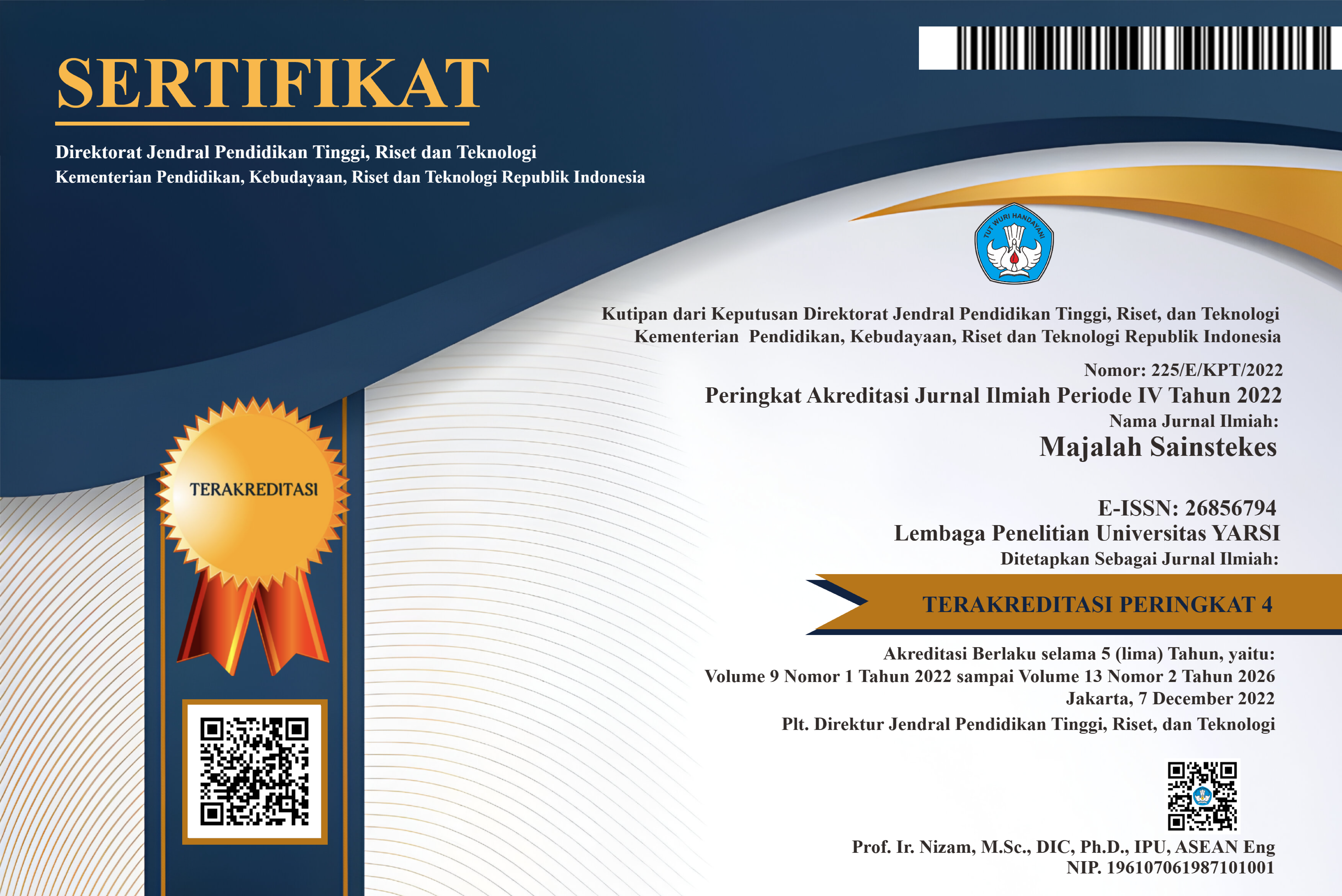Generation Z’s Trust in The Chatbot of Mental Health Service
Keywords:
Generation Z, Trust, Mental Health, Chatbot, Interpretative Phenomenological AnalysisAbstract
Generation Z is the age group that has experienced the most mental health-related issues due to the COVID-19 pandemic in Indonesia. Mental health information system services have become increasingly popular, so patient services are overwhelmed. Chatbot has emerged as one of the solutions to address this problem. However, conversations with them have led to social issues alongside the growing use of chatbots. This study aims to identify the factors influencing Generation Z's trust in patient service chatbots within mental health applications in Indonesia. Using the Interpretative Phenomenological Analysis method, this research analyses qualitative data from observations and interviews with five undergraduate students. Based on the analysis, the study identified seven factors that influence Generation Z's trust in chatbot customer service within mental health applications, with three being novel findings.
References
Anderson BYM and Perrin A 2017. “Tech adoption climbs among older adults,” 2017.
Fauziyyah R, Awinda RC, and Besral B 2021. “Dampak Pembelajaran Jarak Jauh terhadap Tingkat Stres dan Kecemasan Mahasiswa selama Pandemi COVID-19,” J. Biostat. Kependudukan, dan Inform. Kesehat., vol. 1, no. 2, p. 113, 2021.
Følstad A and Skjuve M 2019. “Chatbots for customer service: User experience and motivation,” ACM Int. Conf. Proceeding Ser., 2019.
Goasduff L 2021. “Chatbots Will Appeal to Modern Workers,” Gartner, 2019. [Online]. Available: https://www.gartner.com/smarterwithgartner/chatbots-will-appeal-to-modern-workers. [Accessed: 10-Oct-2021].
Grudin J and Jacques R 2019 “Chatbots, humbots, and the quest for artificial general intelligence,” Conf. Hum. Factors Comput. Syst. - Proc., pp. 1–11, 2019.
Izzatika M, Syakurah RA, and Bonita I 2021. “Indonesia’s mental health status during the Covid-19 pandemic.,” Indig. J. Ilm. Psikol., vol. 6, no. 2, pp. 78–92, 2021.
Linder J and Arvola M 2017. “IPA in UX research: Interpretative phenomenological analysis in a user experience design practice,” ACM Int. Conf. Proceeding Ser., vol. Part F1311, no. September 2017, pp. 17–24, 2017.
Marquez C 2023. “3 cara AI akan menonjol dalam layanan kesehatan di 2023,” CHARLTON MEDIA GROUP., 2023. [Online]. Available: https://healthcareasiamagazine.com/indonesian/exclusive/3-cara-ai-akan-menonjol-dalam-layanan-kesehatan-di-2023. [Accessed: 18-Dec-2023].
Nielsen J 2022. “Why You Only Need to Test with 5 Users,” 2000. [Online]. Available: https://www.nngroup.com/articles/why-you-only-need-to-test-with-5-users/. [Accessed: 14-Jul-2022].
Parker K and Igielnik R 2020. “On the Cusp of Adulthood and Facing an Uncertain Future: What We Know About Gen Z So Far,” Pew Research Center, 2020. [Online]. Available: https://www.pewresearch.org/social-trends/2020/05/14/on-the-cusp-of-adulthood-and-facing-an-uncertain-future-what-we-know-about-gen-z-so-far-2/. [Accessed: 25-May-2023].
Populix 2022. “Indonesia’s Mental Health State & Access to Medical Assistance,” 2022.
Rapp A, Curti L, and Boldi A 2021. “The human side of human-chatbot interaction: A systematic literature review of ten years of research on text-based chatbots,” Int. J. Hum. Comput. Stud., vol. 151, no. August, p. 102630, 2021.
Srinivasan K, Nguyen C, and Tangutur P 2018. “Chatbots Are Here To Stay. So what are you waiting for?,” 2018.
Yen C and Chiang MC 2021. “Trust me, if you can: a study on the factors that influence consumers’ purchase intention triggered by chatbots based on brain image evidence and self-reported assessments,” Behav. Inf. Technol., vol. 40, no. 11, pp. 1177–1194, 2021.
Zhou MX, Mark G, Li J, and Yang H 2019 “Trusting virtual agents: The effect of personality,” ACM Trans. Interact. Intell. Syst., vol. 9, no. 2–3, 2019.
Downloads
Published
How to Cite
Issue
Section
License
Copyright (c) 2024 Bayu Kelana, Rofii Asy Syaani, Febri Kristanto, Pandu Ady Winata

This work is licensed under a Creative Commons Attribution-NonCommercial 4.0 International License.

 Bayu Kelana
Bayu Kelana
 Sekolah Ilmu Manajemen dan Ilmu Komputer ESQ
Sekolah Ilmu Manajemen dan Ilmu Komputer ESQ












